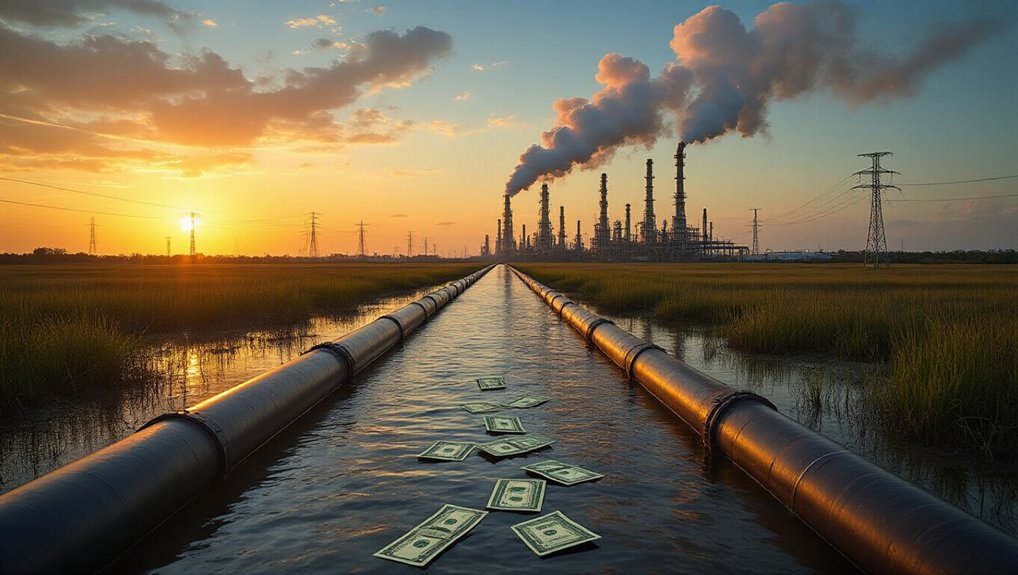Oil giants face increasing pressure over their tax haven strategies. Companies like Shell and Chevron shelter billions in profits across jurisdictions like the Bahamas and Cayman Islands. With governments losing up to $600 billion annually to tax avoidance, calls for reform are growing. Recent regulatory trends show some tightening, but corporations continue finding loopholes. As budget pressures mount globally, big oil’s offshore tax structures may encounter unprecedented scrutiny in coming years.
While major oil companies report billions in profits each year, they’re using complex networks of subsidiaries in tax havens to slash their tax bills. Shell, Chevron, and Exxon made over $83 billion in profits in 2023, yet much of this money faces little or no taxation. Shell alone registered $570 million in tax-free profits in the Bahamas in 2021.
Oil giants rake in billions while sheltering profits in tax havens, making a mockery of corporate tax systems worldwide.
Oil giants rely on locations like the British Virgin Islands, Bermuda, and the Cayman Islands to shelter their earnings. Other popular spots include Switzerland, Singapore, and even the United States, which ranks high on the financial secrecy index despite its tough talk on tax avoidance.
The numbers are staggering. Governments worldwide lose between $500-600 billion annually from corporate tax avoidance. Low-income countries suffer the most, missing out on around $200 billion in potential revenue. Chevron reported $31 billion in untaxed profits across 13 tax haven countries.
These companies use several strategies to minimize taxes. They establish captive insurance subsidiaries, locate trading activities in low-tax jurisdictions, and use the “Water’s Edge Election” policy in some U.S. states. Shell’s tax rates tell the story: just 3% in Singapore on $937 million profits and 15% in Switzerland on $1.1 billion. These captive insurers are notably more profitable than legitimate insurance companies, with extremely low claim payouts relative to the premiums they collect from affiliates.
Recent trends show some pushback against these practices. The 2018 U.S. tax reforms led to partial repatriation of offshore funds. The Common Reporting Standard now promotes financial information exchange between countries. Some states like Alaska prohibit oil companies from using certain tax breaks.
However, progress remains slow. Corporate tax rates have fallen dramatically from 49% in 1985 to 24% today. Many jurisdictions compete by offering new tax loopholes to attract business.
As governments face budget pressures, there are growing calls to close these tax loopholes. Both Harris and Trump failed to provide substantial answers about addressing corporate tax avoidance during their debate, focusing instead on political attacks. Advocates push for country-by-country reporting, unitary taxation, and increased scrutiny of offshore subsidiaries. The question remains: will big oil’s tax haven strategy survive in an era of tighter budgets?







